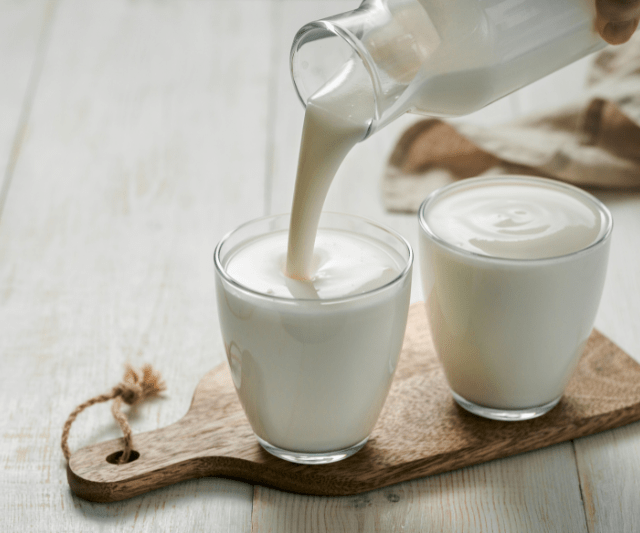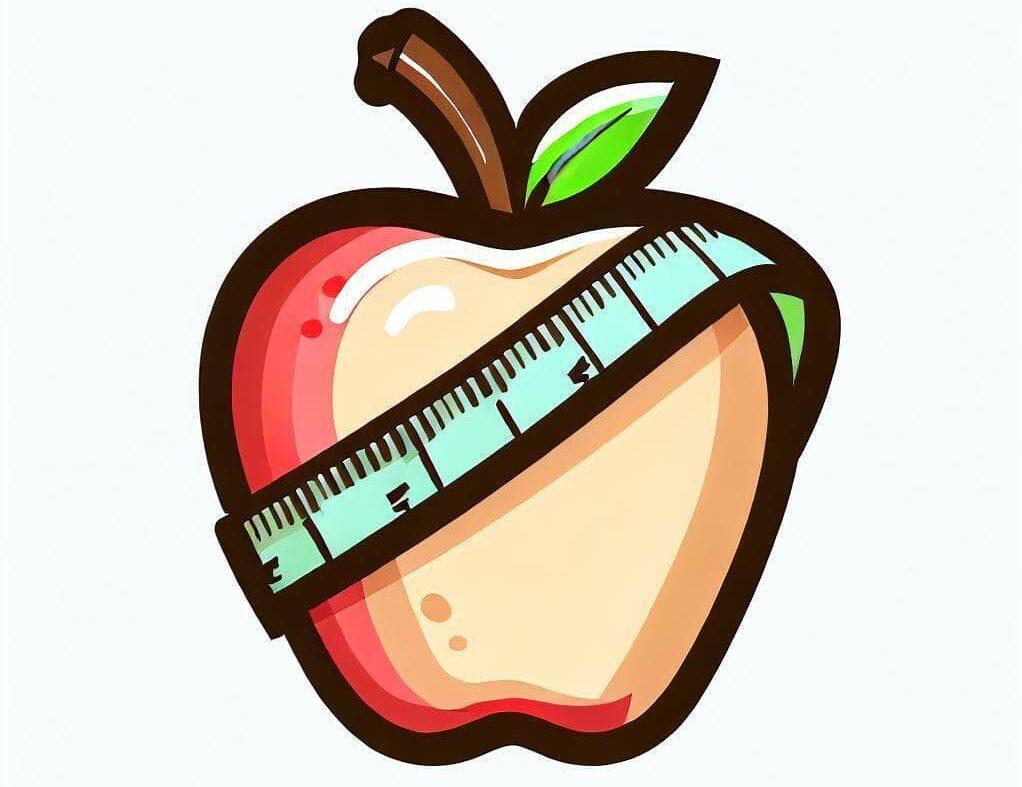Best Time To Drink Kefir For Weight Loss
This post may contain affiliate links which means I may receive a commission for purchases made through links at no extra cost to you. See my disclosure policy for more information.

Kefir is a drink rich in protein and low in calories, and it’s well-known for its probiotic content, making it a great choice for those looking to lose weight.
But is there a specific time of day when drinking kefir could further enhance your weight loss efforts?
Let’s find out.
The Best Time To Drink Kefir For Weight Loss
The best time to drink kefir is with your meals. This is beneficial for several reasons. First, kefir is rich in protein, which can boost the protein content of your diet.
This is especially helpful for vegetarians. Since protein is known to be filling, you’ll likely feel full more quickly when your meals are rich in protein; kefir can help with that.
Second, kefir is loaded with probiotics, which can potentially improve your digestion when consumed with meals.
Third, when you’re trying to lose weight and need to avoid sugar-sweetened beverages, kefir provides a healthy, natural alternative to complement your meal and help wash it down.
Also Read: The Best Time To Drink Coconut Water For Weight Loss
Optimal Times To Drink Kefir For Weight Loss
As an Early Morning Replacement To Coffee based drinks
The problem with coffee-based drinks such as mocha or latte is that depending on how they are made, they may or may not support your weight loss goals.
It all comes down to how much milk, sugar, and cream are used.
Plus, relying on caffeine to function has its own issues, which I won’t go into in this article. But using a healthier option like kefir is a good way to start your day.
I mean, look at the nutrients kefir has to offer. As per the USDA, 1-cup serving of low-fat kefir contains:
- Calories: 104
- Protein: 9g
- Fat: 2.4g
- Carbs: 11g
- Phosphorus: 20% of the DV
- Vitamin B12: 29% of the DV
- Riboflavin (B2): 25% of the DV
- Magnesium: 7% of the DV
- Vitamin D: 12% of the DV
So, the point is you can choose to have a healthy, low-calorie but high in nutrient drink to start your morning on a healthy note.
After Your Workout
When you are done with an intense workout, your body is in need of two things:
1) carbs to replenish all the lost energy you just used during your exercise routine, and 2) protein to repair the micro-tears that took place in your muscle fibers wherever you lifted weights, put a lot of load through a particular exercise such as squats, lunges, or push-ups.
Kefir, as you can see above, ticks off both these requirements.
Plus, you can also use kefir as a base to add your protein shake to enhance its protein intake even more.
30 minutes Before a Meal
If you are someone who has a mean hunger and risks overeating during your meal time, the solution for you is not to develop will power or portion control; the solution is to naturally suppress your hunger levels so that you just don’t feel like eating more than you should.
And let’s say you drank a glass of kefir 30 minutes before your lunch or dinner, your brain can be tricked into thinking that it is receiving food.
The action of the drink passing through your mouth and filling up your stomach causes the brain to trigger the release of a satiety hormones thus reducing your appetite.
Meaning, you’ll be less likely to overeat come mealtime.
Also Read: The Best Time To Apple Cider Vinegar For Weight Loss
The Potential Benefits Of Drinking Kefir For Weight Loss
It Can Be Used as a Low-Calorie Snack
Let’s say you are hungry and it’s still quite a while until you have your lunch or dinner.
You need something that is a) low in calories because you are trying to lose weight, b) quick, because you are hungry, and c) something that can moderately suppress your hunger and carry you till mealtime.
Well, guess what? Kefir ticks all these boxes.
A single glass of low-fat kefir contains just 104 calories, so you could go ahead and have 2 cups of kefir to get rid of those hunger pangs while making sure you are still adhering to your calorie deficit diet.
It is Good for your Tummy
While this isn’t a direct benefit for weight loss, it’s more of a broad benefit.
Kefir contains good bacteria that help you maintain a healthy ecosystem in your gut.
If you have a healthy gut, meaning you have a healthy appetite and no bloating or indigestion issues, this can influence your eating habits in a positive way.
Some studies also show a direct impact between an unhealthy gut and increased hunger hormones, and drinking fermented drinks like kefir can help with that and potentially even reduce your overall hunger levels.
For example, L. acidophilus, one of the most abundant bacterial species in kefir and other fermented dairy products, increases satiety to a greater extent than non-fermented dairy products.
Helps in Maintaining Stable Blood Sugar Levels
Kefir contains specific proteins that, during fermentation, break down into smaller components known as bioactive peptides.
These peptides have been found to exhibit properties that can aid in regulating insulin sensitivity and glucose handling. By improving insulin response, kefir can help maintain steady blood sugar levels.
By stabilizing blood sugar levels, kefir can help prevent the sharp spikes and sudden drops in glucose that often trigger cravings for sugary or high-carbohydrate foods.
Consistent blood sugar levels can lead to better appetite control, making it easier to adhere to a balanced diet without succumbing to impulsive eating.
Also Read: The Best Time To Drink Ginger Lemon Water For Weight Loss
Downsides Of Drinking Kefir For Weight Loss
Overconsumption
Since kefir is nutritious and tasty, one can easily be tricked into overconsuming it.
Obviously, if you are drinking 1-2 glasses of kefir a day, then your calorie intake from it should be limited to around 200 calories.
But the moment you go overboard, say 3-4 glasses, you are taking in a lot more calories—about 300 to 400.
This also depends on how many calories you are allowed to eat in your individual calorie deficit diet, but on average, from what I have seen in people, the majority of caloric deficit diets fall between 1300 and 1700 kcal.
So, let’s say on a daily diet of 1300 kcal, if you drank 4 glasses of kefir excluding your meals, you are very likely to go overboard on your meals, which is what we want to avoid when on a weight loss diet.
Unintentional Psychological Dependence
I have seen this in many people: when they are on a caloric deficit diet, they are doing everything they should, but somehow, if they are drinking a particular type of drink, let’s say kefir or some sort of tea, they tend to give those drinks credit for their weight loss more than they would the lifestyle they had to follow.
So when individuals begin to see a correlation between a specific food item, like kefir, and weight loss, they might develop a psychological dependence on it, believing it to be a panacea for weight management.
This could lead to neglecting other important aspects of diet and exercise, which are essential for sustainable weight loss.
It can be expensive if added to your daily diet
For individuals integrating kefir as a regular part of their diet specifically for weight loss, the cost can add up, especially if opting for high-quality or organic brands.
This economic factor might make sustaining this habit challenging, particularly for those on a tight budget, potentially causing stress that can counteract weight loss efforts.
Also Read: The Best Time To Coffee For Weight Loss
Conclusion
To make the most of kefir for weight loss, consider drinking it at key times throughout the day.
Start your morning with kefir instead of high-calorie coffee drinks to boost nutrient intake and reduce calorie consumption.
After a workout, kefir can help replenish energy and aid muscle repair thanks to its carb and protein content.
Additionally, drinking kefir 30 minutes before meals can help suppress your appetite and prevent overeating.
Incorporating kefir into your routine at these times can help you achieve your weight loss goals more effectively.
FAQ
How much kefir should I drink a day for weight loss?
A good amount to aim for is about one to two cups of kefir per day. This quantity provides enough nutrients and probiotics without adding too many extra calories.
When should I drink kefir, at night or morning?
It depends on what works best for you, but drinking kefir in the morning can keep you fuller, which might help you eat less at breakfast. Some people also like drinking it at night because it can aid digestion and help with sleep.
Does kefir reduce belly fat?
Kefir alone isn’t a magic solution for belly fat, but it can help as part of a balanced diet and exercise plan. Its probiotics improve your gut health, which can help manage weight and reduce fat storage around the belly.
Should you drink kefir on an empty stomach?
Yes, drinking kefir on an empty stomach can be beneficial. It allows the probiotics in kefir to reach your gut more efficiently, where they can help improve digestion and boost your overall gut health.
This post may contain affiliate links which means I may receive a commission for purchases made through links at no extra cost to you. See my disclosure policy for more information.
Rahul is a professional nutritionist certified by the International Sports Sciences Association (ISSA) and a personal trainer certified through the American Council of Exercise (ACE). He has a special interest in the science of nutrition and how it can impact the body.
